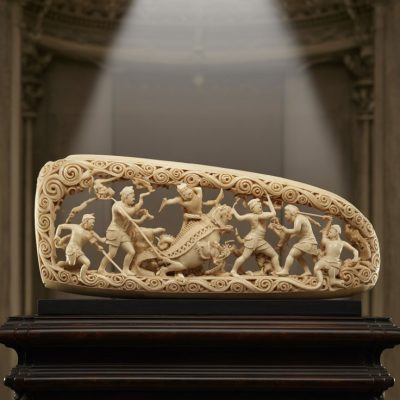Introduction
What’s the very first image that pops into your mind when you hear the word China? The Great Wall? Delicious dumplings? Or perhaps the adorable giant panda? China is one of the world’s oldest civilizations, and it’s filled with incredible stories, traditions, and little surprises that often go unnoticed. Exploring fun facts about China is like opening a treasure chest—you never know what shiny gem you’ll uncover next.
In this article, we’ll journey through China’s culture, history, nature, and modern wonders. Whether you’re curious about ancient inventions or quirky traditions, you’ll find something fascinating that might make you see China in a whole new light.
The Land of Ancient Inventions
Did you know that many things we use daily were born in China? Paper, gunpowder, the compass, and printing are often called the “Four Great Inventions of Ancient China.” Imagine life without paper—how would we share ideas or write books? These creations didn’t just shape China’s history but changed the entire world.
The Great Wall: More Than Bricks and Stones
The Great Wall stretches over 13,000 miles, making it the longest wall on Earth. But here’s the twist—it’s not a single continuous wall. It’s a collection of walls and fortifications built over centuries. Soldiers once used it for defense, but today it stands as a symbol of strength and resilience. Think of it as China’s giant backbone, holding centuries of history.
A Language Like No Other

The Chinese language boasts one of the world’s oldest writing systems, with characters that trace back thousands of years. Each character tells a story, sometimes resembling the thing it describes. Take the character for “mountain” (山), which strikingly resembles three towering peaks side by side. Isn’t that poetic? Mandarin is also the most spoken language in the world, connecting more than a billion people.
The Love for Tea
If coffee powers the West, tea fuels China. Tea has been an essential part of Chinese life for more than 4,000 years. From green tea to oolong, every sip carries history and tradition. Tea houses in China are more than places to drink—they’re where friendships are made, stories are shared, and time slows down.
Giant Pandas: China’s Living Treasure
Giant pandas are more than just cute—they’re a national symbol of peace and friendship. Native only to China, these black-and-white bears are so beloved that the country often gifts them to other nations as a sign of goodwill, a practice called “panda diplomacy.” It’s like sending the ultimate friendship card!
Festivals Full of Color and Meaning
From the bright lanterns of the Spring Festival (Chinese New Year) to the dragon boat races of the Dragon Boat Festival, Chinese celebrations are filled with color, music, and meaning. Each festival has its own story, rooted in centuries-old traditions. For example, the Mid-Autumn Festival celebrates family unity with mooncakes—a sweet reminder that life is sweeter when shared.
The World’s Largest Population

With more than 1.4 billion people, China has the largest population on Earth. That means roughly one in every five people in the world is Chinese. This vast population has shaped everything from food culture to city planning, making China one of the most dynamic places to study human society.
Culinary Adventures Beyond Dumplings
Chinese food is so much more than fried rice or noodles. With 34 provinces, each region has its own unique flavors. Sichuan is renowned for its fiery flavors, Cantonese cuisine shines with delicate dim sum, while northern China is celebrated for its hearty wheat-based dishes. Eating in China is like traveling across a continent—you’ll always discover something new.
Red: More Than Just a Color
In China, red symbolizes happiness, luck, and prosperity. This is why red fills the decorations at weddings, festivals, and even the launch of new businesses. It’s believed to ward off evil spirits and bring good fortune. Imagine living in a world where color itself carries a promise of joy!
The Mystery of Chinese Zodiac Animals
Every year in China is represented by one of twelve zodiac animals, from the rat to the pig. Your birth year determines your zodiac, and many believe it shapes your personality and destiny. For instance, those born in the Year of the Dragon are often seen as courageous and full of ambition. It’s like having a built-in fortune teller guiding your life.
From Silk to Paper: Gifts to the World
Silk, one of the most luxurious fabrics in history, was first discovered in China. Legend says a queen noticed silk threads unraveling from a cocoon dropped in her tea. That discovery started the Silk Road, connecting China with Europe and spreading goods, culture, and ideas.
Modern Marvels: Skyscrapers and High-Speed Trains
While China is deeply rooted in tradition, it’s also racing toward the future. The country is home to some of the world’s tallest skyscrapers and the fastest high-speed trains. Imagine traveling hundreds of miles in just a couple of hours—it’s like time travel made real.
The Richness of Martial Arts

Kung fu and tai chi are more than just fighting techniques—they’re about discipline, health, and philosophy. Many Chinese people practice martial arts for balance and inner peace, blending body and mind like a well-choreographed dance.
Curious Superstitions and Beliefs
In China, numbers carry deep meaning. The number 8 is considered lucky because it sounds like “wealth,” while the number 4 is often avoided because it sounds like “death.” This belief shapes everything from phone numbers to wedding dates, showing how tradition blends with daily life.
FAQs
1. What are some of China’s most famous inventions?
China is renowned for its Four Great Inventions: paper, the compass, printing, and gunpowder
2. Why is red so important in Chinese culture?
Red represents luck, happiness, and prosperity, which is why it’s used in weddings and festivals.
3. Why does the Chinese zodiac hold such importance?
Each year in the zodiac is linked to an animal, thought to shape a person’s character and life path Pandas are national treasures and symbols of peace, often used in “panda diplomacy.”.
4. Why are pandas considered special in China?
Pandas are cherished national symbols of peace and friendship, often shared worldwide through “panda diplomacy.”
5. How does Chinese cuisine differ across regions?
Each region has unique flavors: Sichuan is spicy, Cantonese cuisine is delicate, and northern dishes are hearty.
Conclusion
China is a land where history, culture, and modern life come together in fascinating ways. From its ancient inventions to adorable pandas, from tea traditions to futuristic trains, every corner of China has a story waiting to be told. Think of China as a vast tapestry, each thread representing something unique—woven together, they create a masterpiece unlike any other.










